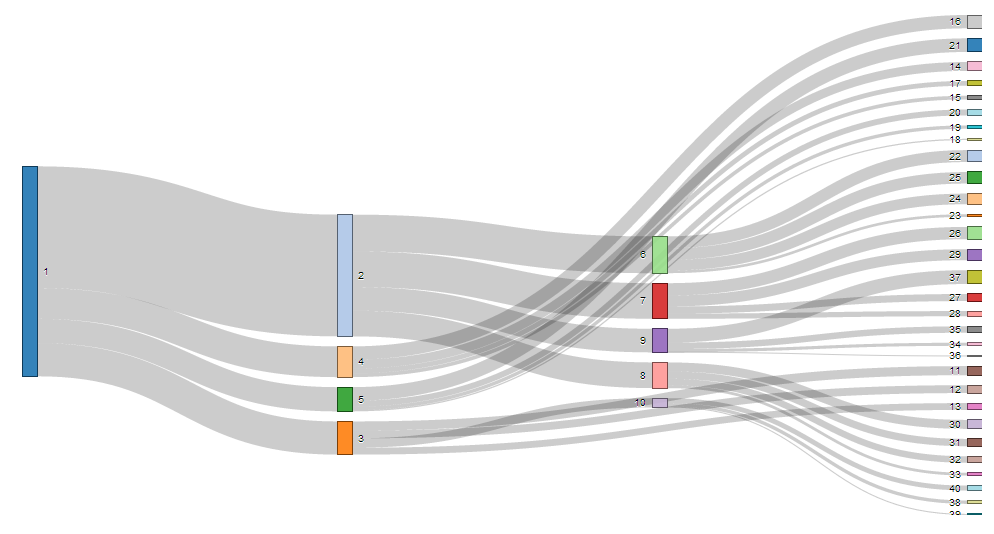If we try to understand an individual event—such as a specific sermon, ritual performance, judicial decision, birth, business closing, residential move, or crime—we might turn to the cultural contexts and motivations of the actors, the structural factors that held influence, or the contingencies of historical chance. But when we try to understand aggregates of events, […]
Research Team
Behavior Measurement & Change
For decades, social-science researchers were limited to collecting data through in-person ethnographies or surveys. But in the world of data-tracking mobile devices, researchers have the ability to measure behavior “in the wild,” and can even use digital tools to influence behavior and motivate positive change. To explore these emerging opportunities and their far-reaching implications, Social […]
Research Team
Integrating Social and Biophysical Epistemologies, Data, and Methods
Is climate change the result of human activity, or is it a natural phenomenon? For Nathan Sayre, Associate Professor and Chair of UC Berkeley’s Department of Geography, this framing of an important modern question is misleading, as it fails to take into account the fundamental fact that humans are part of nature. “I’m struggling with […]
Research Team
Crime, Community Support, and Policing
Social Science Matrix is supporting a team of researchers from diverse social science disciplines to explore new approaches for measuring attitudes toward law enforcement in local communities. Bringing together methods from fields such as political science, psychology, and development economics, a key goal is to “to understand how police departments can transform relationships with local […]
Research Team
Algorithms as Computation and Culture
Algorithms—the chains of “if-then” logic by which computers make calculations—are increasingly finding their way into the broader culture, whether through politics, media, science, or everyday life. To explore the ramifications of this shift, UC Berkeley Social Science Matrix is sponsoring a seminar entitled “Algorithms as Computation and Culture,” which will bring together computer scientists, social […]
Research Team
Prosopography and Historical Social Networks
Social scientists working to study modern society have an array of data sources available, from government censuses to digital social networks. But for researchers trying to study people who lived, say, 2500 years BFB (before Facebook), trying to figure out which people were friends (or business associates, family members, or political allies) can pose significant […]
Research Team
The Politics of Biology and Race in the Twenty-First Century
In 2000, Craig Ventner, Head of Celera Genomics and a lead scientist in the Human Genome Project, declared that "race is a social concept, not a scientific one," based on an analysis of the genomes of five people. Of course, his proclamation did little to remove perceptions of racial difference from society, and in fact, […]
Research Team
The Human Right to Water
In 2010, the United Nations General Assembly recognized a human right to water and sanitation, acknowledging that everyone, without discrimination, is entitled to adequate, safe, accessible, and affordable water. But what, in practice, does the human right to water entail? How should human rights influence the allocation of water among agriculture, industry, households, and the […]
Research Team
Imperial Declines
In Spring 2014, UC Berkeley Social Science Matrix sponsored a seminar on “Imperial Declines,” looking at how and why empires reach a peak before inevitably diminishing in power and shrinking in reach. Coordinated by Carlos Norena, Professor, and Daniel Sargent, Assistant Professor, both from the UC Berkeley Department of History, this seminar sought to examine […]
Research Team
The Neuroscience of Decision-Making
In recent years, our understanding the biology behind human decision-making has expanded, as neuroscientists have made discoveries that shed light on disorders related to decision-making deficits, such as addiction, obesity, and neurological and psychiatric disorders. The use of brain-measurement technologies has meanwhile crept into the public sphere in other ways; for example, marketers and political […]
Research Team
Tupí-Guaraní Language and History Group
In Spring 2014, Social Science Matrix sponsored a working group of researchers from the fields of descriptive and historical linguistics, computational phylogenetics, and lowland South American archaeology and ethnography. Their goal: to develop insights into the linguistic and social history of the indigenous Tupí-Guaraní-speaking peoples, who live across much of lowland South America. English words […]
Research Team
Framing Rights and Immigration
Ask Californians whether they think immigrants should have a path to citizenship, and the answer you get back will depend heavily on how the question is framed. This important finding—described in recent research by a team of UC Berkeley sociologists—was at the heart of “Framing Rights and Immigration,” a Social Science Matrix seminar sponsored in […]







